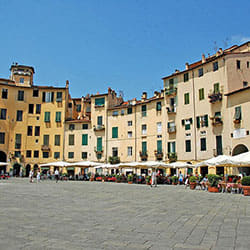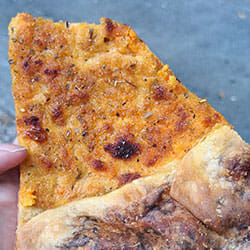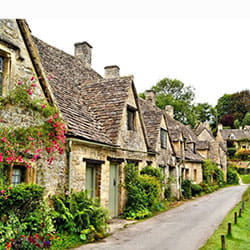It is a way of catering which has been consolidated because it combines traditional flavors with the increasing search for gourmet and healthy eating. It is a form of hospitality closely linked to the territory which makes the “zero km products” (local products) its raison d'être.

Holiday farms are located in natural settings
The agriturismo is usually a family run business and it is a very popular dining solution especially in the warmer months, when people feel the desire to eat outdoors and enjoy a rural setting. Holiday farms are also very popular around Easter time in Italy because Italians often associate this festivity with a bucolic setting.
With the aim of enhancing and protecting holiday farms, the Liguria Region has established, with a special provision, a classification of farms that may offer hospitality, incorporating the classification proposed at a national level by the Ministry of Agricultural Food and Forestry Policies.
Such farms must give the visitors, as already in the case for the classification of hotels, an overall level of comfort when it comes to lodging and also offer a variety of services and enrich the environmental context where the farm is located by offering nature, landscape and leisure.
The classification categories are five and the symbol used to indicate the endorsed facilities is the sun. All authorized holiday farms (both offering lodging and food) have to display the Agriturismo Italia logo with the sun on their sign, a measure which was recently adopted at the national level to distinguish the real holiday farms following the right standards.

At least 20% of the products served must come from the holiday farm itself
Agritourism means that the accommodating farm run by an agricultural entrepreneur has to be connected to an activity of cultivation of the land, forestry and or with the breeding of animals. These conditions are regulated by the Regions, which issue the certificate of qualification to the activity of the holiday farm.
Some holiday farms offer hospitality in bed & breakfast-style accommodation, others in open spaces for campers.
The holiday farm must provide meals with products coming mainly from their own farm or from other farms in the area, possibly marked with quality standards indications.
Very often such farms organize tastings of farm products and, on or outside the farm, they offer recreational, cultural, educational, sporting or hiking to help the guest get in contact with the territory, in order to enhance the rural heritage of the area.

Local recipes are the protagonists
From a tax point of view, the proceeds from the agritourism activity are considered agricultural income and therefore these places benefit from tax breaks that other accommodation and food facilities can’t have. The activity of agritourism can be carried out all year round or, upon communication to the competent Municipality, according to periods established by the agricultural entrepreneur. Where there is need, it is possible to suspend the reception of guests for short periods without the need for further administrative communications.
Every October of each year, according to the procedure indicated by the region, the subjects who carry out the agritourism activity must submit a declaration containing the indication of the maximum rates referring to periods of high and low season, which they wish to undertake the following year.






























































